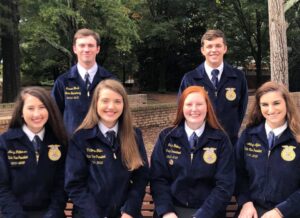“No kids should be unsafe at school,” Scott Faber, Environmental Working Group’s senior vice president of government affairs, said to a group gathered for an online media event.
No, this wasn’t a discussion about gun violence, bullying, mental health, or failing grades. It’s about something that the EWG finds absolutely horrifying: There are over 4,000 schools in the United States located within 200 feet from farm fields. As Faber said, that’s leaving our school children exposed and vulnerable.
On Nov. 2, the EWG (the same folks behind The Dirty Dozen) launched an interactive map created to demonstrate just how close our kids are learning to dangerous farms and published an written analysis titled, Schools near pesticide spray zones could lose health protections. The specific concern is that farmers may spray “toxic” chemicals on those fields causing cancer, developmental deficiencies, and other untold horrors.

As Congress crafts a new farm bill, “big chemical companies” are using “big lobbying companies” to abolish state and local laws that protect our children, the EWG said. The activist organization’s campaign claims to push back on these efforts so our children don’t suffer the consequences of “big chemical companies’” greed.
To celebrate this launch, Faber hosted a presser with U.S. Sen. Cory Booker, an outspoken vegan and anti-family-farm activist (Booker previously called all of animal agriculture — including our family farmers — ”perverse”). Booker emphasized that maintaining local and state laws is imperative to protecting kids. Officials closest to the ground understand the particular risks to students best. So that’s where pesticide regulations belong, Booker pontificated.
He also insinuated that unless you’re part of the “evil chemical companies,” everyone should support EWG’s efforts.
Booker’s comments were mostly read from his computer screen and included plenty of buzz words. But I was skeptical of his newly discovered dedication to federalism. So after listening in on the call for a while, I submitted a question: “Was Senator Booker suggesting that the U.S. Environmental Protection Agency was failing to adequately regulate pesticide use?” I never got an answer though, because the EWG’s Faber rephrased it by asking Booker to comment on how important it is for state and local regulations to supplement the EPA’s power.
I wasn’t surprised. These people literally peddle disinformation and propaganda for a living.

The truth is, the EPA has sufficiently and capably regulated pesticide use in this country for decades. Commercially available products undergo intense scrutiny and research before gaining approval for use. By the time that happens, the EPA understands precisely how much pesticide exposure causes a risk and how to mitigate that risk for applicators, farmers, and consumers — yes, that includes the sweet little children on the playground.
But that actually makes sense when you realize this has absolutely nothing to do with protecting children. The compiled data is very limited: 4,000 schools are located within 200 feet of “spray zones.” That’s it. It doesn’t evaluate whether the fields are in cultivation or sprayed during the school year. The map can’t show you what, if any, pesticides are used on those fields. It doesn’t consider whether those pesticides can actually cause harm. There’s not a single shred of evidence that any child was ever exposed to pesticides as a result of the school’s location.
And, more damning, there’s no evidence of actual harm to a student anywhere.
Tellingly, Faber and Booker both chose their words carefully. They used a lot of “potential,” “could be,” and “maybe” to describe the risk. It’s a lesson EWG learned after food advocates and scientists called them out for the misleading Dirty Dozen list — it’s all just hypothetical harm. The whole campaign is carefully crafted and cultivated to back opponents into the unenviable position of arguing that pesticide applications by schools are just fine. It’s so well done it’s almost admirable.
The EWG’s real purpose is to spread fear and anxiety over pesticides so it can influence legislation, including the next farm bill. But the real message is so inconceivable I’m surprised they can say it with a straight face: U.S. farms are so dangerous, so poisonous, and so polluted that we can’t even allow our precious children anywhere near them.
Sorry not sorry, but I’d rather have children growing up around farms fields than attending school in dirty urban environments. Our farms are not the problem. Our radical activists and out-of-touch senators are.
Amanda Zaluckyj blogs under the name The Farmer’s Daughter USA. Her goal is to promote farmers and tackle the misinformation swirling around the U.S. food industry.












